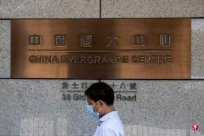Japan plans to start the second round of Fukushima nuclear treatment of water. Xie Zhanhuan, director of the Hong Kong Environment and Ecological Bureau, said that the Hong Kong government will maintain a ban on Japanese aquatic products.
According to the Sing Tao Daily, Xie Zhanhuan saw reporters after attending the event on Wednesday (October 4), reiterating that the Hong Kong government's opposition to Japan's unilateral aircraft measureTen capitals in the county are imported to ensure food safety.
Xie Zhanhuan believes that there is not much room for relaxing the ban in the short term. He urged the Japanese to adopt better treatment methods to reduce the risk of environmental ecology and food safety.
Asked about the Hong Kong government's strengthening control of Japanese imported food, and inspecting whether there are insufficient manpower, Xie Zhanhuan said that the government will immediately detect Japanese imported food with hand instruments.The review results of the International Atomic Energy Agency covering aquatic products covering Fukushima and nearby counties and cities. The government will announce the results of Japanese imported food testing every day.Contractor hand.
For the Hong Kong government's economic assistance to the economic assistance to the catering industry, Xie Zhanhuan said that the government has already communicated with the catering industry very early, and the industry has long been prepared, so it has a small impact. Japanese food testing will not extend customs clearance.time.He emphasized that the government should ensure that all foods in Hong Kong are safe, so that citizens can rest assured to eat, thereby reducing the impact on the business of the catering industry.
Tokyo Electric Power Company announced that the Fukushima First Nuclear Power Station will launch the second round of nuclear treatment of the water -rowing sea plan on October 5.The total amount of nuclear treatment of the second round of emissions is expected to be around 7,800 tons, and the emission time is about 17 days.
The Japanese government said that the equipment had not failed during the first round of the sea operations, and the central government, Dongdian and Fukushima County sampled the seawater and fish around the nuclear power plant, and there was no abnormality in the concentration of nuclein.


